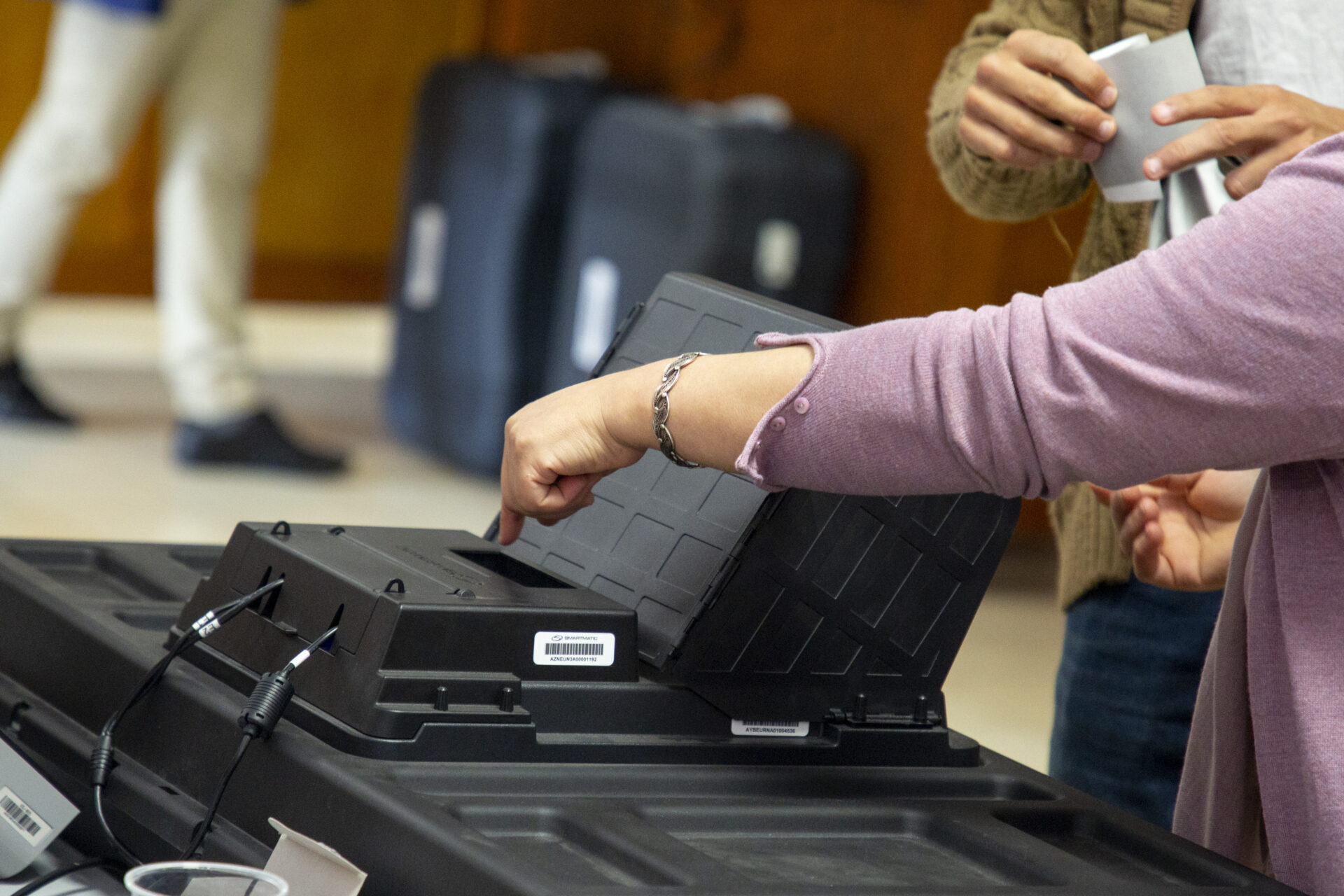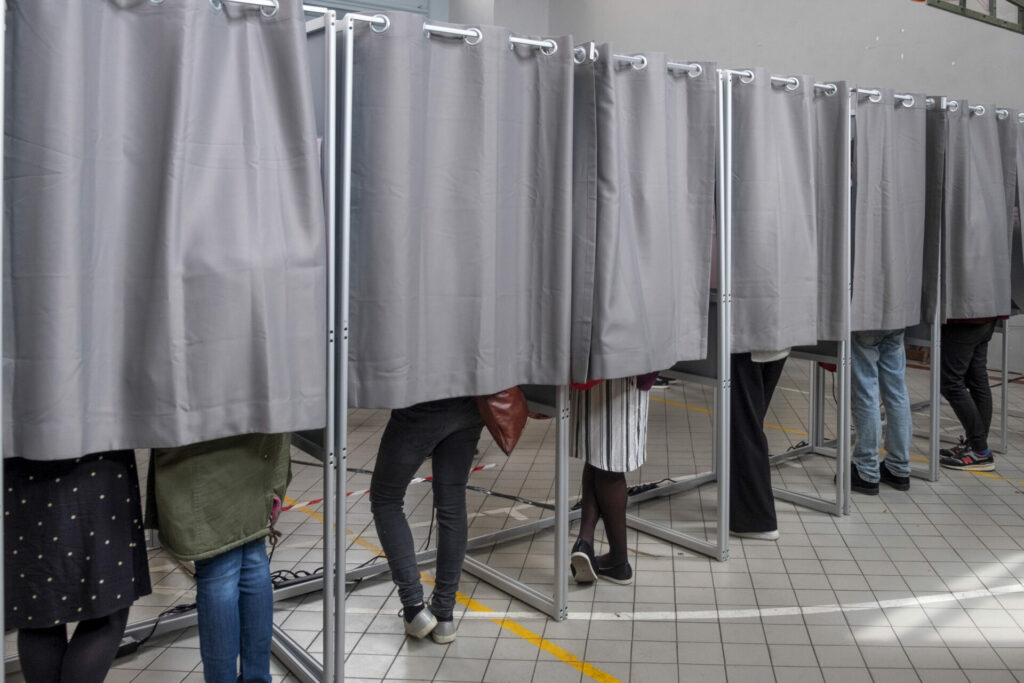A wide range of new political parties is popping up in Belgium ahead of the elections this year, many promising to be "an alternative" to the traditional political centre. But for most, getting elected will be tough.
The Flemish branch of the political party Forum voor Democratie (Forum for Democracy/ FvD) led by Dutch far-right politician and conspiracy theorist Thierry Baudet was the latest in a string of new parties being launched ahead of the elections. Baudet revealed his plans to take FvD Flanders to the European parliamentary elections in June on Saturday evening. He wants to provide an alternative for the Flemish right-wing parties N-VA and Vlaams Belang.
"If the elections in June are a success, we will start thinking about other levels in the next election round," Baudet said. FvD is the latest example of a growing trend in Belgium: the creation of new political parties to take advantage of declining support for traditional parties that have been governing the country for years.
Support for the political centre (Flemish Christian-democratic CD&V and liberals Open VLD for example) has been crumbling for some time, while more extreme parties are gaining in popularity. This further encourages new parties to push through with the motto that change is needed.
The new parties, and what they stand for
Months before the regional, federal and European elections, the list of new parties seeking a parliamentary seat is growing. "With every election, new parties pop up that want to break through," political scientist Nicolas Bouteca (UGent) told VRT NWS.
BoerBurgerBelangen (BBB), the Flemish counterpart of the Dutch centre-right agrarian BoerBurgerBeweging (also BBB), which emerged as the big winner in the country's regional elections, is another example of a new party that seeks to challenger the status quo. The party says it wants to stand up for "farmer and citizen", the future of agriculture and "a strong structure for a sustainable society".
This is an example of parties responding to international trends. The party was founded in the Netherlands and wants to break through in Flanders because a similar party had success abroad.
Blanco is another new party hoping to stand in this year's Federal elections. Its only agenda point is giving voters the option to vote for an empty seat in the Federal Parliament to embody the "protest vote" of those who do not see themselves reflected in the existing political offering.
The party proposes 120 effective candidates who, once elected, will abstain from all votes in parliament except one: an amendment to the Belgian constitution allowing empty seats in the Federal Parliament.

People voting during the 2019 elections. Credit: Belga/ Hatim Kaghat
Another list, VIVA PALESTINA, was set up by politician Dyab Abou Jahjah. With this list – he refrains from calling it a party – he will take part in the regional elections in Brussels. Flanders is still under consideration. The "recognition of the genocide in Gaza" is one of the spearheads of the list, as well as the fight against all forms of discrimination, corruption, inequality and colonisation.
Volt Belgium, the Belgian branch of the pan-European party that operates in 30 European countries, puts European cooperation at centre stage. It believes today's challenges such as migration and climate change, can only be solved internationally. The party will compete Federally and Regionally with a progressive, liberal, green and above all pro-European orientation.
The new political movement Voor U (translated as For You) was founded by Flemish MP Els Ampe at the end of last year and is aiming for 7% of the vote in the June elections. It is a collaboration between the citizens' parties Vista, Freedom, Volksliga and L99, as well as some former Open VLD and LDD members. The party aims to restore democracy by standing up for citizens and "not party interests".
L'Unie is a new party, founded by young people, that wants to unite Belgium and "bridge the linguistic and social gaps of the country". It wants to stand up across the country in Federal and European elections.
Finally, Redelijk Rechts (Reasonable Right-wing) is another new party, set up by former CD&V politician Hendrik Bogaert, who now leans more to the right than his former party. It aims to become a realistic right-wing movement. "Many people don't want to be capitalists but want to be enterprising, want to be socialists but not socialists, want to be for nature but not ecologists, and don't want to be nationalists but proud of their country," he said.
However, it is an outlier on this list, as it will likely not stand in the June elections.
Uphill battle
What all these parties do have in common is that it will not be easy for them to get elected. The country's political system makes it hard to beat established parties.
Parties only receive state subsidies once they have an elected member in parliament meaning new parties have to rely on private donations to fund their operations and election campaigns. Meanwhile, established parties spend millions on social media advertising every year.
It is also more challenging for them to find possible candidates to stand for elections. If parties want to stand up in all constituencies with full lists, hundreds of people are needed.
Even if parties manage to fill their lists, the strict electoral threshold of 5% makes it very difficult for new parties to gain enough support to govern the country. To illustrate, in the Netherlands, where the threshold is just 0.6%, four new parties won seats in the last two elections, while in Belgium, the last new party to cross the threshold in its first election was the libertarian Lijst Dedecker (LDD) in 2007.
The electoral threshold is mainly there to prevent the political landscape from becoming too fragmented. In the Netherlands, the system results in a lot of parties with one or two seats in parliament. In December last year, various small parties including Volt and Vista called for a reform of the electoral system by abolishing the electoral threshold to give smaller parties a chance to win seats as well.
More new parties may emerge in the coming months as for the regional and federal elections on 9 June, lists can be submitted until 13 April.

